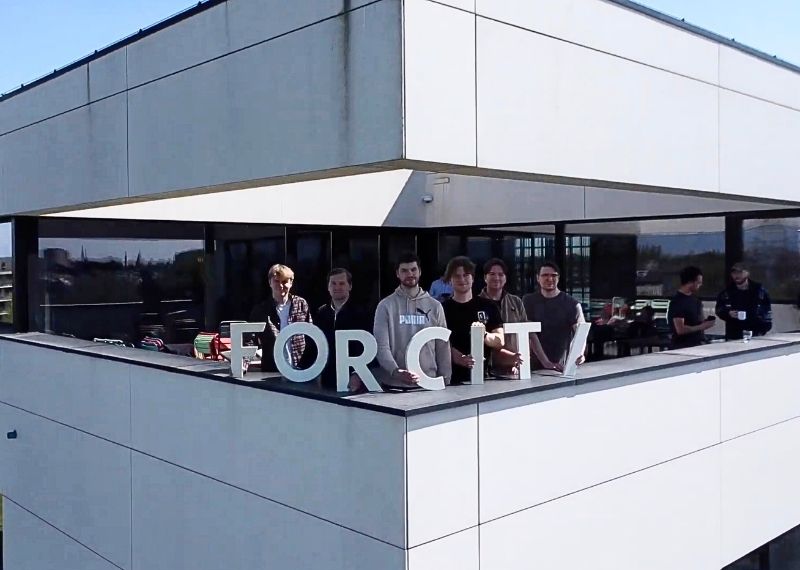Driving passenger growth at Brussels Airport through data intelligence
Passenger Leakage Reference Case

Brussels Airport Company (BAC) – one of Europe’s leading aviation hubs – manages both passenger and cargo operations and plays a vital role in connecting Belgium to the world. To strengthen its strategic decision-making with data, BAC partnered with Flanders Technology & Innovation (FTI) and Proximus to launch the Passenger Leakage project: an innovative initiative aimed at understanding why Belgian travelers sometimes choose foreign airports, and how data can help bring them back to Brussels.
The challenge: losing passengers to foreign airports
BAC observed that several Belgian travelers begin their international journeys from airports such as Charleroi, Frankfurt, Paris, or Amsterdam. In the aviation industry, ‘passenger leakage’ refers to travelers who live in one airport’s catchment area (the region it serves) but choose to use another airport instead. This ‘passenger leakage’ impacts the airport’s ability to attract airlines and build strong business cases for new long-haul routes from Brussels.
The approach: data-driven collaboration
FTI took the lead as strategic orchestrator and data governance partner, ensuring that all partners (BAC, Proximus, and public stakeholders) collaborated effectively to design a sustainable, privacy-first data solution aligned with BAC’s long-term strategy.
Using anonymized and aggregated location data from Belgian SIM cards, the project mapped travel behavior to show where and how travelers begin their journeys abroad. FTI and its partners combined multiple mobility and aviation data sources to analyze passenger flows, uncovering how many travelers from Belgium and neighboring regions use competing airports, which routes they take, and where they fly. The findings revealed the true extent of passenger leakage and the potential demand for more long-haul connections from Brussels, thereby highlighting clear growth opportunities for Brussels Airport.
The solution: visualizing the traveler flows
Key features of the solution include:
- Identifying the last location in Belgium before departure (e.g., Brussels, Charleroi, or other airports).
- Detecting departures via neighboring countries, such as the Netherlands or Germany.
- Providing monthly aggregated datasets to track trends over time, while fully respecting GDPR and data anonymization requirements (minimum aggregation of 30 users).
- Ensuring continuous data validation and quality control, enabling BAC to rely on the insights for route development and strategic planning.
The insights allow BAC to visualize the flow of Belgian travelers toward long-haul destinations and to quantify missed opportunities - such as travelers flying to Thailand via Amsterdam instead of directly from Brussels.
The methodology: three-phased
The project followed FTI’s proven three-phase methodology:
- Initiation – defining objectives, governance, and data requirements.
- Execution – developing the data pipeline and datasets.
- Evaluation – validating data quality, testing use cases, and refining insights.
The project was structured in agile sprints, with key milestones:
- Kick-off: May 2025
- Data Pipeline Testing: June–Sep 2025
- Go-Live: Q4 2025
FTI designed and supervised the technical and organizational architecture – including governance, stakeholder alignment, and project coordination – while Proximus served as the data and technology provider.
The impact: strategic value for BAC
The Passenger Leakage project delivers actionable insights that empower BAC to:
- Strengthen airline negotiations by demonstrating untapped demand.
- Identify market gaps for long-haul routes from Brussels.
- Develop evidence-based strategies to reduce leakage to other European airports.
- Explore broader mobility insights, including passenger flow patterns and multimodal access to the airport.
This initiative showcases how data-driven collaboration can transform strategic decision-making in aviation, and how FTI’s neutral innovation governance and advanced mobility analytics unlock economic and societal value for Flanders and beyond.
Building smarter with data
At FTI, we continue to connect organizations, data providers, and technology experts to unlock similar value across industries – from mobility and energy to health and workplace well-being.
👉 Interested in exploring how data can strengthen your organization’s strategic decisions? Let’s connect.
Visit fti.be or reach out to our team to discover how we can help you build smarter with data



